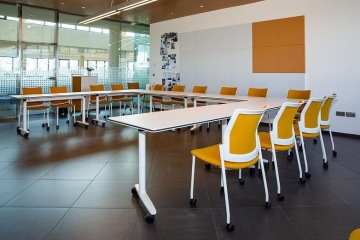No socialising without privacy

After the disappearance of cubicles and excessive compartmentalisation in favour of the open space concept championed a few years ago, modern workspaces are once again demanding more private environments.

Open space
In addition to open areas for collaborative work, which enhance social interaction and the exchange of ideas, it is necessary to equip offices with rooms where meetings can be held, working in silence or hosting work teams that require greater concentration. Places where, depending on the task to be carried out at all times, workers feel comfortable and can be more productive.

The importance of concentration
Directly related to a better quality of life of employees, well-being at work begins by creating well-defined spaces that enable "escaping" the noise generated
by excessively open environments. In fact, one of the most frequent problems in open-plan offices is how they hinder the ability to concentrate on an activity that requires a high degree of understanding and blocking out distractions.

Informal rooms
Therefore, it is essential to avoid having endless open spaces, alternating them with informal rooms, small meeting areas or offices that reduce their scale to make them even more welcoming. Through solutions that combine private and shared aspects, offices should be conceived as flexible and versatile places, where intimate spaces coexist with others that are much more social.